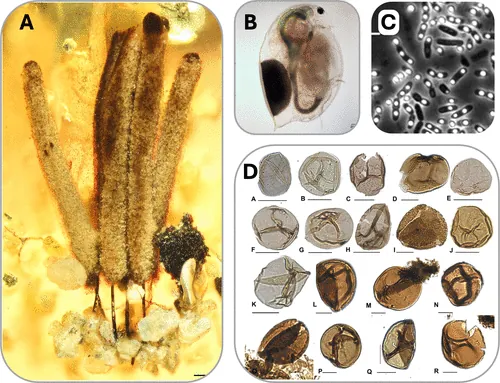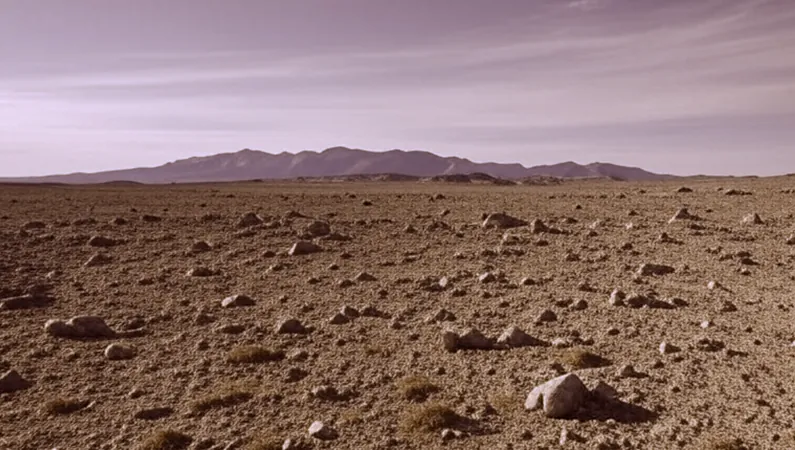
The Surprising Power of Dormancy: Could It Unlock Secrets of Life on Earth and Beyond?
2025-01-13
Author: Emma
Life on Earth has weathered billions of years of existence, facing multiple catastrophic events that threatened nearly all forms of life. From meteor strikes to climate shifts, our planet has endured periods of near-extinction. However, many living organisms have a remarkable ability to enter a state of dormancy—an extraordinary survival tactic that allows them to slow down their metabolic activity and ride out life-threatening conditions. But could this fascinating phenomenon also be the key to life beyond our planet, such as on Mars or Venus?
In the realm of speculative astrobiology, scientists consistently ponder whether alien life might flourish in environments starkly different from ours. However, the essence of life forms may be beyond our current understanding—potentially existing in forms so bizarre we might not recognize them at all. Typically, when discussing the hunt for extraterrestrial life, we anchor our theories in terrestrial biology, using Earth’s myriad organisms as a reference point.
Dormancy is an astonishingly prevalent trait among numerous organisms on Earth, serving as a lifeline during extreme environmental stresses. This process protects living entities by preserving vital bodily functions while temporarily shutting down others, thus minimizing the risk of extinction. In a recent study published in The Royal Society Journals, researchers Kevin D. Webster and Jay T. Lennon delve into the significance of dormancy in the quest to understand how life might evolve elsewhere in the universe.
Their analysis highlights crucial evolutionary milestones necessary for developing intelligent life. This includes a consistent supply of chemical building blocks that outpace decay and establishing compartments that shield primitive life forms from their environment. However, the evolution of life has not been a straight trajectory; it has faced interruptions through extinction events that have marked Earth’s history, including five major extinction events resulting in significant ecological shifts.
Dormancy emerges as a pivotal mechanism allowing life to endure those dark moments. For various organisms, dormancy can manifest as hibernation in animals or seed dormancy in plants, where metabolic activity declines drastically to conserve energy until more favorable conditions arise. In this inactive state, organisms can withstand unfavorable conditions such as extreme temperatures, droughts, or reduced sunlight.
The implications of dormancy stretch beyond mere survival during harsh conditions—it suggests a potential lifeline for any primitive organisms on other planets that may have adapted this strategy to cope with inhospitable environments. This presents fascinating possibilities: could life in dormant states be lurking on planets like Mars, waiting patiently for the right conditions to arise?
As scientists continue to unveil the mysteries of dormancy and its role in life's resilience, they also ignite hopes of discovering extraterrestrial life. The idea that life may exist elsewhere, lying dormant in alien environments, poses compelling questions about our understanding of biology and the nature of life itself. So, next time you ponder the existence of life beyond Earth, remember the quiet power of dormancy—it's not just about surviving; it could be a vital hallmark of life across the cosmos!
Stay curious, because the secrets of dormancy might just hold the key to uncovering life's mysteries both here on Earth and in the far reaches of the universe!









 Brasil (PT)
Brasil (PT)
 Canada (EN)
Canada (EN)
 Chile (ES)
Chile (ES)
 Česko (CS)
Česko (CS)
 대한민국 (KO)
대한민국 (KO)
 España (ES)
España (ES)
 France (FR)
France (FR)
 Hong Kong (EN)
Hong Kong (EN)
 Italia (IT)
Italia (IT)
 日本 (JA)
日本 (JA)
 Magyarország (HU)
Magyarország (HU)
 Norge (NO)
Norge (NO)
 Polska (PL)
Polska (PL)
 Schweiz (DE)
Schweiz (DE)
 Singapore (EN)
Singapore (EN)
 Sverige (SV)
Sverige (SV)
 Suomi (FI)
Suomi (FI)
 Türkiye (TR)
Türkiye (TR)
 الإمارات العربية المتحدة (AR)
الإمارات العربية المتحدة (AR)